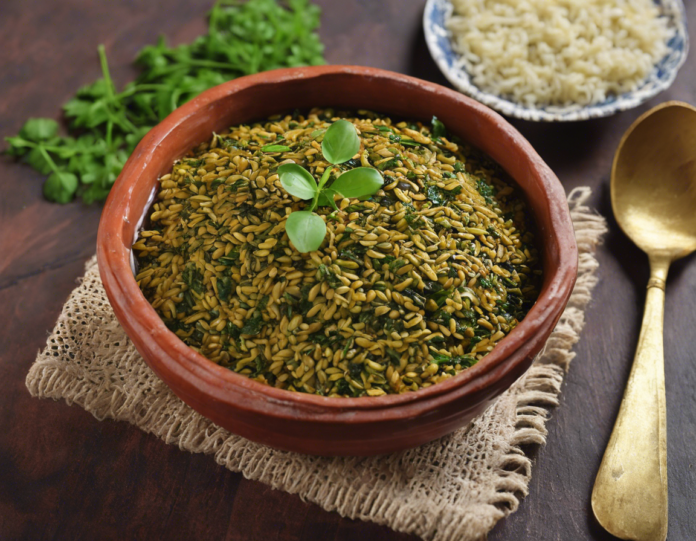Introduction
Methi, also known as fenugreek, is a versatile herb that is not only used in cooking but also as a natural remedy for various health issues. The small, golden fenugreek seeds have been used for centuries in traditional medicine due to their numerous health benefits. In this comprehensive guide, we will delve into the various benefits of eating methi and how it can contribute to your overall well-being.
Nutritional Profile
Before we explore the benefits, let’s take a look at the nutritional profile of methi. Methi is packed with essential nutrients, vitamins, and minerals that are beneficial for your health. It is an excellent source of protein, fiber, iron, manganese, magnesium, and vitamin B6. Moreover, it contains phytonutrients such as choline and trigonelline, which have antioxidant properties.
Health Benefits of Eating Methi
-
Blood Sugar Regulation: One of the most well-known benefits of methi is its ability to regulate blood sugar levels. The soluble fiber in methi slows down the absorption of sugar in the blood, which helps in managing diabetes. It also contains amino acids that stimulate the secretion of insulin, thereby reducing blood sugar levels.
-
Weight Management: Methi is known to aid in weight loss due to its high soluble fiber content, which helps in promoting a feeling of fullness. This, in turn, reduces overeating and helps in weight management. Additionally, methi seeds help in boosting metabolism, which can further assist in weight loss.
-
Digestive Health: Methi seeds are a natural remedy for various digestive issues such as indigestion, bloating, and constipation. The high fiber content in methi helps in improving digestion and relieving gastrointestinal problems. It also acts as a natural laxative, promoting regular bowel movements.
-
Heart Health: Methi is beneficial for heart health as it helps in lowering cholesterol levels. The fiber in methi binds to cholesterol and eliminates it from the body, reducing the risk of heart diseases. Moreover, methi seeds contain potassium, which helps in regulating blood pressure and maintaining cardiovascular health.
-
Anti-Inflammatory Properties: Methi has anti-inflammatory properties that help in reducing inflammation in the body. This makes it beneficial for conditions such as arthritis, gout, and muscle pain. Regular consumption of methi can help in alleviating pain and swelling associated with inflammatory conditions.
-
Immune Boosting: Methi is rich in antioxidants that help in boosting the immune system. These antioxidants protect the body from free radicals and strengthen the immune response against infections and diseases. Including methi in your diet can help in improving overall immunity.
How to Include Methi in Your Diet
There are various ways to incorporate methi into your diet to reap its benefits:
- Methi Seeds: These can be added to soups, salads, stir-fries, and curries to enhance flavor and nutrition.
- Methi Leaves: Fresh methi leaves can be used in salads, sauces, marinades, and as a garnish for various dishes.
- Methi Powder: Methi powder can be used as a spice in cooking or added to smoothies, teas, and beverages for a nutritional boost.
Precautions and Side Effects
While methi has numerous health benefits, it is important to consume it in moderation. Excessive intake of methi seeds or supplements can lead to side effects such as digestive issues, diarrhea, and allergic reactions. Pregnant women should avoid consuming methi as it can stimulate uterine contractions. Individuals taking medications for diabetes or blood thinners should consult their healthcare provider before consuming methi regularly.
FAQs (Frequently Asked Questions)
-
Is it safe to consume methi seeds daily?
It is safe to consume methi seeds daily in moderate amounts. However, excessive intake may lead to digestive issues. -
Can methi help in hair growth?
Yes, methi seeds contain nutrients that promote hair growth and strengthen hair follicles. -
Does methi help in reducing cholesterol levels?
Yes, methi is known to help in lowering cholesterol levels due to its high fiber content. -
How can I use methi leaves in cooking?
Methi leaves can be used in curries, soups, salads, and as a garnish for various dishes. -
Is methi safe for diabetic patients?
Methi can be beneficial for diabetic patients as it helps in regulating blood sugar levels. However, it is advisable to consult a healthcare provider before including it in the diet.
Conclusion
In conclusion, eating methi can provide numerous health benefits ranging from blood sugar regulation and weight management to digestive health and immune boosting properties. With its rich nutritional profile and versatile uses, methi is a valuable addition to your diet. By incorporating methi seeds, leaves, or powder into your meals, you can harness its potential to enhance your overall well-being. Remember to consume methi in moderation and consult a healthcare provider if you have any underlying health conditions.




